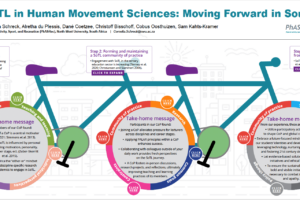
Ungrading: What do Students Think?
By Amy A. Hasinoff, Wendy Bolyard, Dennis DeBay, Joanna C. Dunlap, Annika C. Mosier, Elizabeth Pugliano
For many students and instructors, grades are the most daunting aspect of the learning process. As instructors, it’s evident to us that grades can induce stress and anxiety, hindering students’ intrinsic motivation, engagement, creativity, receptivity to feedback, and overall academic growth.
To address these issues, a growing number of educators are turning to an innovative assessment approach known as “ungrading.” This pedagogical practice challenges the conventional role of grades in learning, instead emphasizing substantive, growth-oriented assessment strategies. Various studies have demonstrated that typical ungrading practices (such as self-assessment and reflection, peer-review, and specifications and contract grading) can achieve equal or superior learning outcomes compared to traditional methods, but there is limited case-study evidence on how students perceive ungrading. This led us to conduct one of the first systematic studies of the student experience, asking: how do students view pedagogical practices that instructors have developed to support an ungrading strategy? We surveyed students in a range of disciplines and courses employing various ungrading approaches to assess their perceptions of these practices.
Our findings indicate that students generally respond positively to ungrading approaches, with most asserting that it enhanced their learning experience and engagement. Notably, students reported improved relationships with instructors who embraced ungrading, a factor strongly linked to student success and retention. Additionally, students expressed heightened levels of engagement, enjoyment, and interest in courses utilizing ungrading. They reported an increase in intrinsic motivation, a sharper focus on learning, and greater creativity.
A notable challenge associated with ungrading is that some students reported feeling heightened stress because of the unfamiliarity of the approach and the uncertainty that can accompany ungrading practices. To mitigate this issue, we recommend that instructors employing ungrading strategies take extra care in clearly communicating their assessment methods to students throughout the course. We believe that this additional effort is a worthwhile investment, given that our study’s outcomes suggest that ungrading practices have the potential to realign both students’ and instructors’ time, energy, and attention towards the core objective of learning. By decentering grades and prioritizing meaningful feedback, instructors can foster a more conducive environment for learning, ultimately benefiting both students and educators.
Read the TLI article here.
Image generated by DALL-E 3, 2024.




